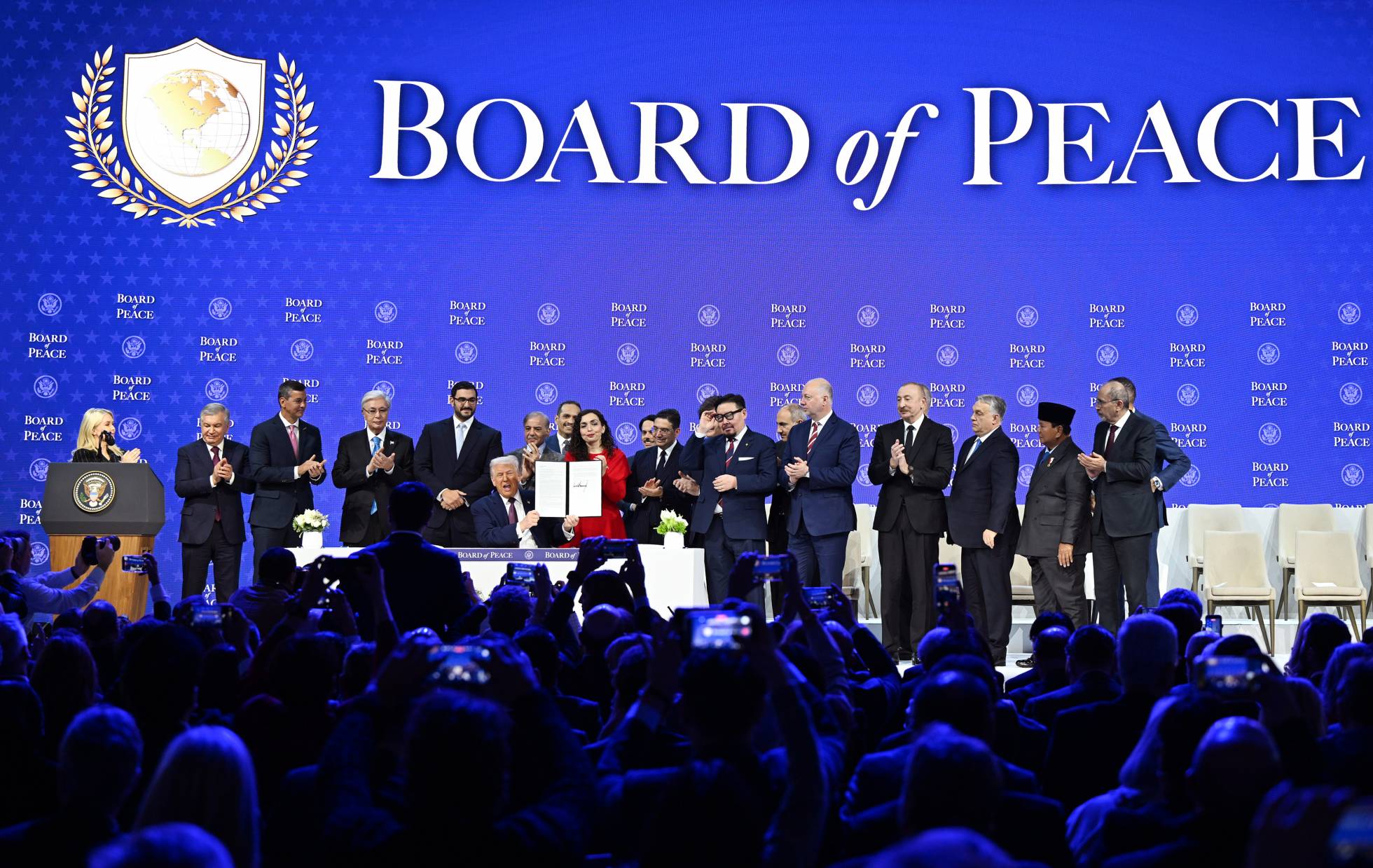In the preamble to the Protocol of the Constitutive Act Relating to the Establishment of the Peace and Security Council (PSC) of the African Union (AU), AU member states’ lamented that ‘no single internal factor has contributed more to … the suffering of the civilian population [in Africa] than the scourge of conflicts within and between our states’. It is not merely the direct use of physical violence that results in civilian death, displacement and misery. In many of the conflicts that erupted since the 1990s, millions of people have perished not just from such direct attacks but more so from other causes largely made possible by such conflicts. Thus, in CAR and the Sahel millions of people displaced by conflicts have faced disease, hunger and malnutrition and in Somalia and South Sudan millions have similarly encountered imminent danger of perishing from famine.
The circumstances that precipitate these dire conditions of hunger and starvation and the scale of the resultant crises necessitate targeted approach to conflict induced hunger and starvation. Such approach should deal with the need for conflict parties to strictly adhere to human rights and international humanitarian law rules while engaging in hostilities, the provision of food assistance to conflict affected people and the need for ensuring secure and unfettered humanitarian access for enabling humanitarian agencies to deliver life saving assistance.
Understanding the relationship between conflicts and starvation
Certainly the relationship between conflict and starvation or hunger is complex and non-linear. However, it is now adequately established that conflict is the main driver of hunger and starvation in conflict affected countries. Conflicts produce hunger and starvation both directly and indirectly.
Conflicts directly cause hunger and starvation where conflict parties deliberately target crops, livestock and other food sources on which the civilian population depend for their survival. Similarly, conflicts directly produce starvation where conflict parties use food as weapon of war either by preventing people from producing food or from having access to food. Indeed, one of the main causes of hunger and starvation in conflict situations is the direct or indirect restriction that conflict parties impose on humanitarian access including through deliberate targeting of humanitarian actors.
In the four countries (South Sudan, Somalia, North East Nigeria and Yemen) where the UN declared in 2017 the existence of near-famine conditions endangering the lives of a staggering 20 million people, hunger and starvation are not a result of drought. They are rather created due in large part to violence and conflict.
Often the contribution of conflicts to hunger and starvation is indirect. Such is the case where conflicts damage agriculture and disrupt food production efforts. The insecurity arising from fighting often means that people could not farm. Where such insecurity also limits distribution of humanitarian aid, hunger and starvation would often ensue.
The nature and scale of the problem in Africa
While not unique to Africa, most recent humanitarian emergencies relating to food insecurity arising in conflict situations are from the continent. Indeed, three of the four famines or near famine situations that the UN declared in 2017 are in Africa.
In South Sudan, people faced unprecedented scale of food insecurity and malnutrition. According to the 2017 UN statistics 45% of the population (4.8 million) faces crises and emergency levels of food insecurity, of which some 100,000 people are on the brink of starvation. This is in part due to the fact that the conflict has made it impossible for farmers to tend their fields. Additionally, armed groups have also been accused of deliberately destroying crops, looting cattle, burning homes and villages and damaging vital water sources. It is no coincidence that the famine affects areas affected by the fighting between government forces and rebels.
Despite the progress that has been achieved in recent years, the Somalia conflict has put more than half the population in need of emergency assistance, with 363,000 children suffering acute malnutrition. While this time around, as in 2011, drought takes blame for the conditions of hunger and starvation, the on-going conflict plays significant part in the creation of the near famine situation by exacerbating already dire conditions of drought.
In north east Nigeria, namely Yobe, Adamawa and Borno States, 2.6 million people (19 percent of the area’s population) are estimated to be in crisis, emergency and Famine. These are the parts of the country where conflict with Boko Haram has left 1.8 million people still displaced, farmers unable to grow crops. Apart from Boko Haram’s use of terrorism as its modus operandi, the emergence of such severe levels of food insecurity is in part a result of restrictions of humanitarian access and the physical inaccessibility of those in need of food aid, particularly as IDPs.
Apart from these three major cases, intensifying conflicts have led to a rapid deterioration of the food security in the Democratic Republic of the Congo (where the number of people facing acute hunger reached 7.7 million people), the Lake Chad Basin (Niger, Chad and Cameroon) and Sudan (where 3.8 million people are food insecure).
The need for targeted African action by the PSC
Review of relevant sessions show that the current engagement of the PSC does not cover the role of conflicts in causing food insecurity, including famine. The nature and scale of the crises on their own necessitate more targeted engagement from the PSC on this theme. Additionally, such engagement is also a legal and political imperative within the framework of the AU.
Although the PSC has addressed itself to the issue of drought and conflicts, its current engagement is largely limited to how drought contributes to conflicts. At its 286th session held on 18 August 2011 in the context of the famine in Somalia, the PSC did not go further than expressing its concern and urging member states to contribute to the relief effort in Somalia. In the first session dedicated to climate change and conflict at its 585th meeting, held on 30 March 2016, the PSC recognized the inextricable link between climate change, and peace and security in Africa. At its 660th session, the PSC expressed its concern specifically ‘over the devastating impact of climate change in Africa as manifested through recurrent droughts, which is one of the major triggers of tensions and violence in communities.’ The same line of expression was used in the press statement issued following its 708th meeting. To the extent that it has addressed the issue of humanitarian access, the PSC did so only in relation to specific conflict situations and not as part of a thematic agenda.
Under the Constitutive Act of the AU, Article 4(h) stipulates the right of the AU to intervene ‘in respect of grave circumstances, namely: war crimes, genocide and crimes against humanity’. It not only creates the legal basis for intervention but also imposes an obligation on the AU to intervene to prevent or stop the perpetration of such heinous international crimes anywhere on the continent.
Dubbed as the embodiment of the new normative principle of non-indifference, Article 4(h) encumbers the AU with the responsibility for mobilizing, within the framework of its peace and security work, the requisite action to address conflict-induced hunger and starvation. This most notably includes the condemnation of the use of starvation as weapon of war as constituting war crimes or crimes against humanity contrary to Article 4(h) of the constitutive Act. Additionally, where hunger and starvation is a direct result of the actions or inactions of conflict parties, as highlighted above, it is deemed war crime under IHL as provided for under Article 54 of Additional Protocol I to the Geneva Conventions and Article 14 of Additional Protocol II to the Geneva Conventions.
In other conflict situations to which IHL may not apply, hunger and starvation that result directly from the actions or inactions of government or non-government actors constitute serious violations of applicable human rights and crimes against humanity. The African Commission on Human and Peoples’ Rights, the principal human rights body of the AU, in its resolution 374 recognized conflict situations as having grave impact on the fundamental rights of affected people particularly the right to food. It called on state parties to the African Charter and non-state actors to guarantee unfettered access to
Follow the example of UN Security Council
While it can draw on the rich normative frameworks of the AU, in crafting its engagement on conflict induced hunger and starvation the PSC could follow the example of the UNSC. The UNSC has dedicated increasing attention to the theme of conflict and hunger. During 2017 and 2018, it held various meetings and initiated various measures. Following a letter the the Secretary-General sent in February 2017 highlighting a risk of famine facing various conflict situations, the UNSC convened Arria-formula meeting on 16 June on the risk of famine in conflict-affected areas in Yemen, Somalia, South Sudan and north-east Nigeria. This led to the presidential statement issued on 9 August 2017. The statement called on all parties to allow safe, timely and unhindered access to all areas and to facilitate entry for essential imports of food, fuel and medical supplies into each country and their distribution throughout. The Council further urged all parties to protect civilian infrastructure, which was critical to the delivery of humanitarian aid in the affected countries. The UNSC convened another session in October where the Secretary-General briefed the Council on progress made to address the risks of famine and challenges faced.
On 24 May, the UNSC adopted Resolution 2417 (2018) on the link between armed conflict and food insecurity, including the threat of famine. Apart from highlighting the link between conflict and hunger and the obligating of conflict parties, the resolution envisages the inclusion of information on the risk of famine and food insecurity in the Secretary-General’s regular country-specific reports and for the Secretary-General to report to the Council, by way of early warning, on risks of conflict induced-famine and widespread food insecurity in the context of armed conflict.
Clearly, there are rich resources both from the normative framework of the AU and the experience of the UNSC that offer the basis for a PSC engagement on this important subject. While there are various options for the PSC, a good starting point would be to dedicate a thematic session on conflict-induced food insecurity in conflict affected countries in Africa.


